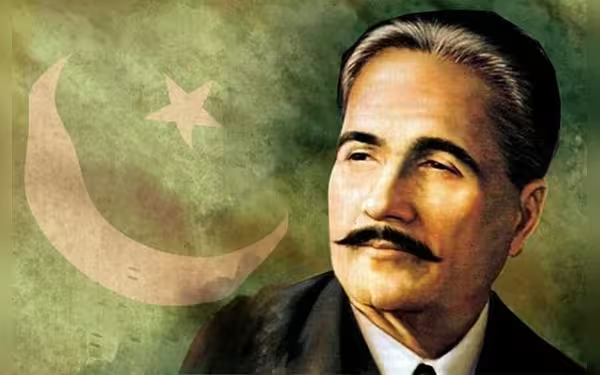Saturday, November 16, 2024 08:26 PM
Iqbal's Philosophy: Guiding Pakistan Towards Progress
- Iqbal's teachings inspire national unity and self-discovery.
- His poetry promotes resilience and independence.
- Iqbal's vision remains relevant for contemporary challenges.
 Image Credits: dailytimes_pk
Image Credits: dailytimes_pkExplore Allama Iqbal's philosophy as a guiding light for Pakistan's progress and unity.
In a world that is constantly evolving, the teachings of great leaders serve as guiding lights for nations striving for progress and prosperity. Among these leaders, Allama Dr. Muhammad Iqbal stands out as a visionary poet and philosopher whose ideas continue to inspire generations. Born on November 9, 1877, in Sialkot, Iqbal dreamed of a separate homeland for Muslims in the subcontinent, a dream that eventually materialized as Pakistan. His philosophy encompasses various aspects of human life, providing a roadmap for individuals and nations to achieve success and recognition on the global stage.
Allama Iqbal, often referred to as the "Poet of the East," is celebrated not only in Pakistan but also around the world. His poetry transcends borders, resonating with people from Asia to the Middle East, and even Europe and America. His ability to inspire the youth of British India was a testament to his genius. As noted by scholars, Iqbal's work sparked a flame of resistance against colonialism, encouraging Muslims to assert their rights and identity through peaceful means.
Iqbal's poetry is rich with profound symbols and concepts. He often explored themes such as "Shaheen" (eagle) and "Khudi" (self), emphasizing the importance of self-realization and the relationship between humanity and the divine. In his book "Asrar-e-Khudi," Iqbal elaborates on the significance of selfhood, urging individuals to believe in their abilities and strive for mutual coexistence. His philosophy promotes qualities such as independence, resilience, and contemplation, which are essential for personal and collective growth.
Moreover, Iqbal's intellectual journey was shaped by his exposure to various literary traditions, including English, Arabic, Urdu, and Persian. This diverse background allowed him to develop a unique worldview that remains relevant even after 147 years. His teachings advocate for peace, harmony, and the promotion of Islamic values, making his philosophy deeply humanistic and solution-oriented.
As we approach the celebration of Allama Iqbal's 147th birth anniversary, it is crucial to reflect on his message of self-discovery, national unity, and human dignity. His vision for a just and equitable society continues to inspire individuals and nations alike. By embracing Iqbal's teachings, Pakistan can aspire to reach new heights of success, fostering a strong, progressive, and prosperous society. In a time when the world faces numerous challenges, Iqbal's philosophy serves as a beacon of hope, guiding us toward a brighter future.













